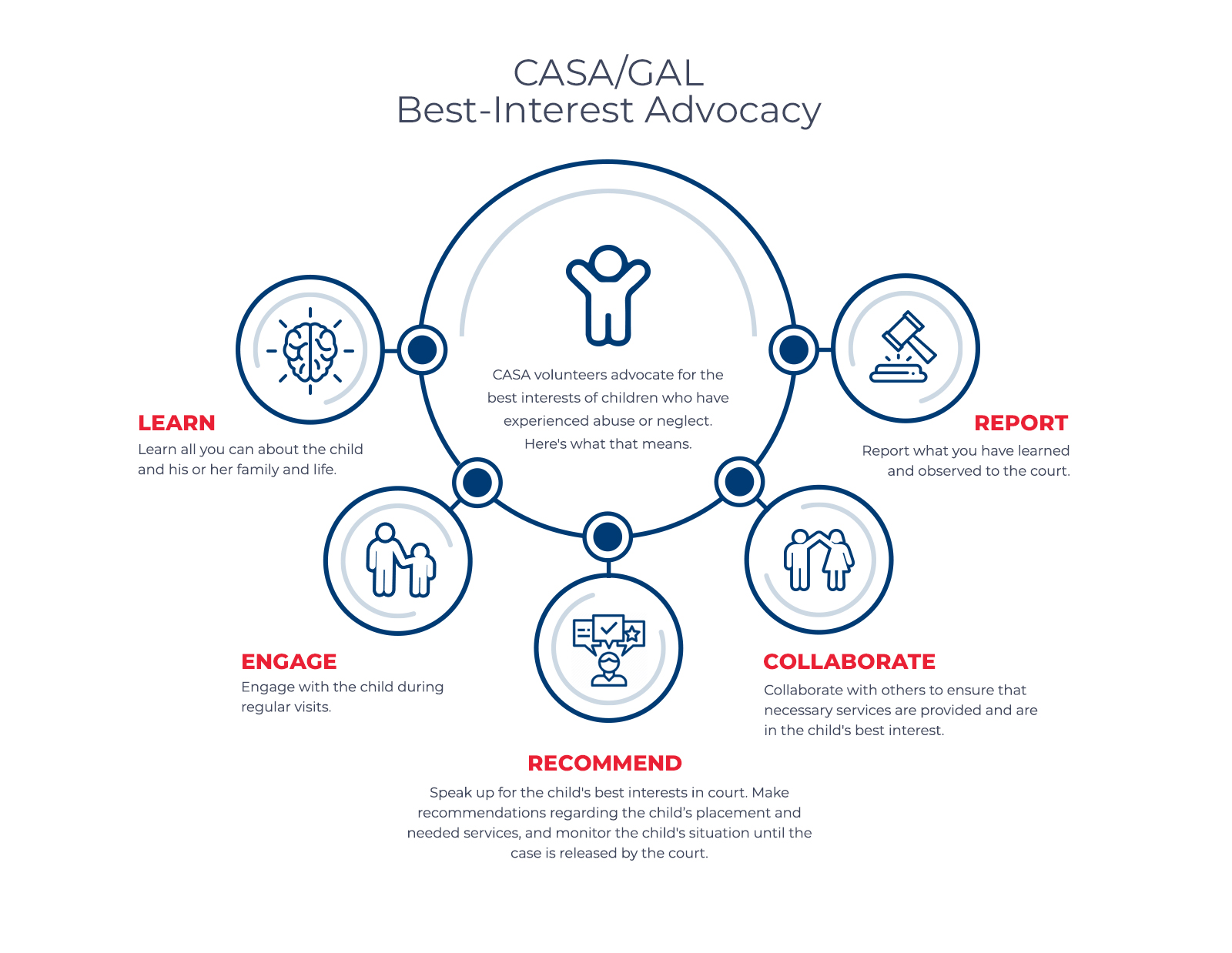Children and youth who have experienced abuse or neglect are among the most vulnerable populations in America. A child in foster care may have faced physical, psychological or emotional trauma and years of uncertainty as they wait to go home, be adopted or simply see what happens next. All that chaos has long-term effects. Having a caring, consistent adult to listen and put a child's best interests before all others' can make all the difference. That's where a CASA comes in - a Court Appointed Special Advocate.
CASA volunteers are appointed by judges to advocate for children’s best interests. They stay with each case until it is closed and the child is in a safe, permanent home.
Volunteers work with legal and child welfare professionals, educators and service providers to ensure that judges have all the information they need to make the most well-informed decisions for each child.
Our best-interest advocacy is driven by the guiding principle that children grow and develop best with their family of origin, if that can be safely achieved. Most of the children we work with are in foster care, but some are with their family of origin. And, most children who leave foster care do so to return to their family.

CASA is a unique concept for the juvenile court system. When the first program began in Seattle, Washington in 1977, it was an experiment to involve community volunteers in sensitive and confidential matters of families. The volunteers, speaking as the guardians for the children in court, brought significant information about the children to whom they were appointed that was free from biases, policies and procedures. The volunteers proved to be an effective way to help prevent inappropriate and unduly long foster care placements, and to provide the court with a perspective based solely on the child’s best interest. As a result, courts in other states began adopting the idea and the CASA concept has become one of the fastest growing child advocacy movements the country.